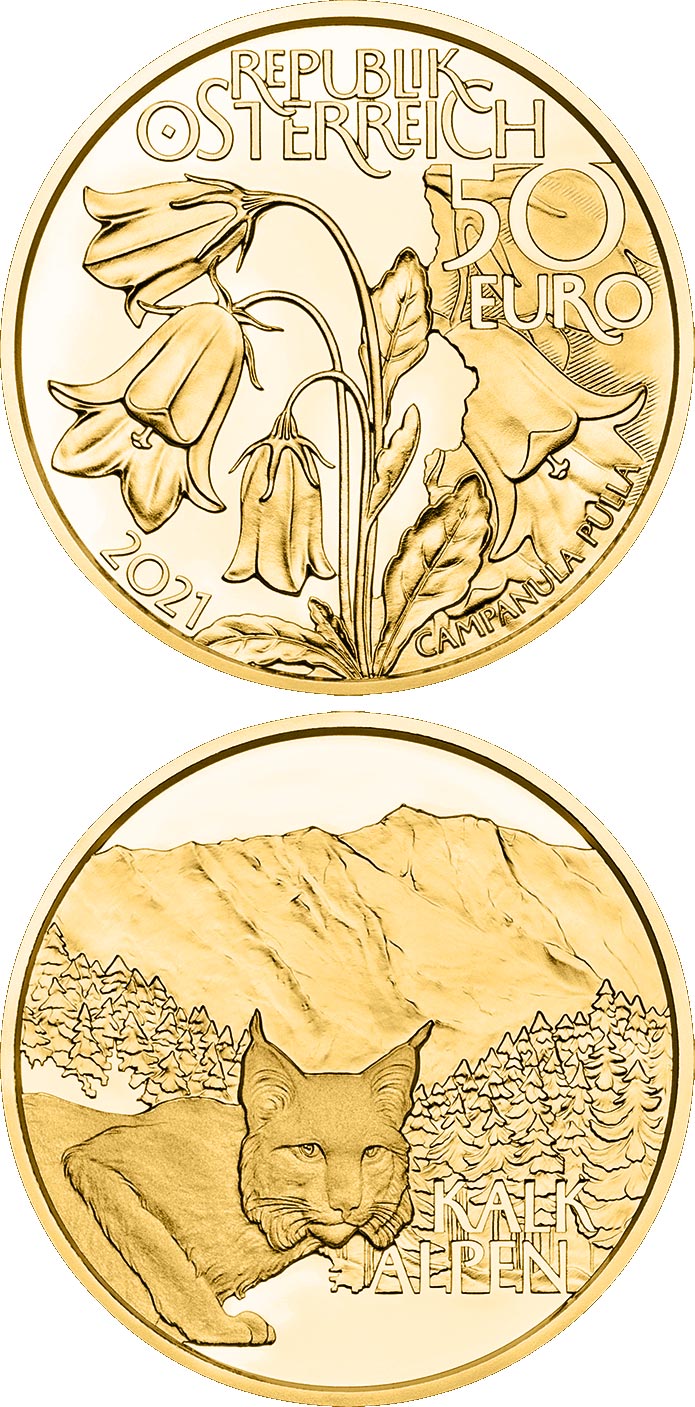50 euro - Alpine Forests
Series: Austria - Alpine Treasures

Central Europe’s largest forested area, Kalkalpen National Park is home to 30 different forest ecosystems. Of the park’s 15 endemic vascular plants, the Austrian bellflower is the standout. A familiar sight in the park, the plant’s bluish-purple drooping flowers are a rare sight elsewhere. But you can find one on Alpine Forests, the second coin in the Alpine Treasures series, which highlights the rare species of plants and animals native to the Austrian Alps.
Located in Upper Austria, Kalkalpen National Park was established in 1997. Still largely untouched by human habitation and relatively unpenetrated by transport routes, the dark and dense woodland found in this northern branch of the Limestone Alps is a precious reminder of the pristine, primeval forest that covered the continent for millions of years. The plan is to gradually return the Kalkalpen forest to its completely unmanaged, natural state by letting nature take its course. This will not only provide deep insights into the natural world during prehistoric times but also shed light on the environment in which our distant ancestors lived. Dating from 1474, the oldest beech tree in continental Europe can be found in the park’s primeval beech forest.
The Austrian bellflower is show in the foreground of the coin’s obverse. A lynx features on the coin’s reverse, behind it the main ridge of Kalkalpen National Park’s Sengsengebirge massif and its densely wooded slopes. Six lynx currently reside in the park but, given the wild cat’s wary nature, sightings are relatively rare.